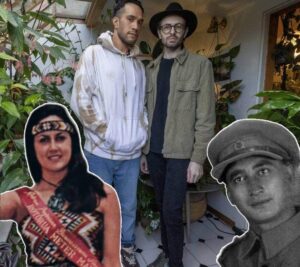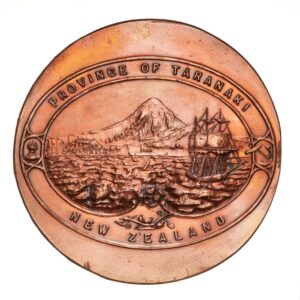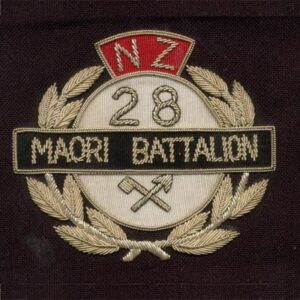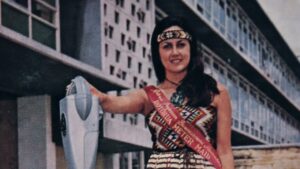1852: From Patriarchy to Potted Plants
August 19, 2023
By AHNZ
 For the nation of New Zealand to survive we must reproduce or else, as obvious as it is to have to say, we will perish. A rate of 1.61 births per woman (2020) is below replacement rate which, again, obviously, means we have a declining population. Unwilling to let our economy shrink (and their tax-take in particular) the Government tends toward making up the shortfall in Kiwis by importing immigrants from other nations. This demographic change helps the balance books of the ‘farm’ by importing cheap labour, lowering our wage rate, and bringing in more taxpayers. It also helps the politicians at the ballot box who have imported new grateful citizens who are expected to show their gratitude on polling day. However, these policies overlook the shrinking nation of New Zealanders who are being replaced in our own country. The only answer to keeping Project New Zealand going, with our particular culture fork of the Western World, is for Kiwi families to produce Kiwi children. For example, the Northcroft family that came to New Zealand in 1852.
For the nation of New Zealand to survive we must reproduce or else, as obvious as it is to have to say, we will perish. A rate of 1.61 births per woman (2020) is below replacement rate which, again, obviously, means we have a declining population. Unwilling to let our economy shrink (and their tax-take in particular) the Government tends toward making up the shortfall in Kiwis by importing immigrants from other nations. This demographic change helps the balance books of the ‘farm’ by importing cheap labour, lowering our wage rate, and bringing in more taxpayers. It also helps the politicians at the ballot box who have imported new grateful citizens who are expected to show their gratitude on polling day. However, these policies overlook the shrinking nation of New Zealanders who are being replaced in our own country. The only answer to keeping Project New Zealand going, with our particular culture fork of the Western World, is for Kiwi families to produce Kiwi children. For example, the Northcroft family that came to New Zealand in 1852.
Replacing New Zealanders in New Zealand has its own down-stream problems. People who are not part of Project New Zealand bring their own ethnic projects here, with values and epistemologies of their own, which frequently clash. Sometimes it’s violent such as the Samoan machette murder on Tongans in the Otara Projects (1988.) In the 1960s South Asian Muslims were imported into Christchurch where they started up the Al Noor Mosque which was wrestled off them by traumatised Arab and Somali people freshly imported in the 1990s. The resulting ferment, which the politicians responsible were oblivious to, led to another permanent resident (well, he is now…) Brenton Tarrant stepping in and committing mass murder (2019.) Tarrant’s manifesto (now banned by the state that made all this possible) clearly states that he was reacting to these down-stream problems of Replacement Immigration policy. Ref. 1985: Al Noor Mosque, AHNZ
Sometimes politicians calculate that it’s popular to offer to help the Kiwi breeding program, recognising that we do not breed well in captivity. For example, in 1925 Gordon Coates campaigned for the general election in a climate for fear about falling birth rates. He offered direct family assistance for poorer families and expanded on that in March 1933 with a ‘batchelor tax’ to ursher unmarried men toward taking a mate and producing some Kiwi kids as a tax break¹. In June 2023, also while campaigning for a general election, Christopher Luxon followed in the footsteps of Coates: “I mean, here’s the deal, essentially New Zealand stopped replacing itself in 2016…I encourage all of you to go out there, have more babies if you wish, that would be helpful.” Yet, this was immediately undermined by National’s ambitious Deputy Leader Nicola Willis who said it was just a joke. Ref. Christopher Luxon urges Kiwis to have more babies, saying it ‘would be helpful’, RNZ
This brings us, at last, to one of New Zealand’s founding patriarchies that once produced scores of children but now raises indoor potted plants. “Maika Grant and Halakimua Lai both have a love of plants in their blood” rather than a love/focus on children. Grant’s (Te Arawa Maori tribe, the article wants you to know) great-grandfather was a warrior and priest of the Maori Battalion during World War 2. Patriarch. Fast-forward to the 2020s and Grant himself is a Hipster “Houseplant Hero” who lives as a couple with another man, Lai, of Niuean descent.
Where once Northcrofts brought life, human life, into their homes the priority here has turned to vegitable babies. They even refer to them as “adopted” and transport them in the car like their children. Rather than take a wife, the men have taken to each other and propegate a jungle in a townhouse designed to nourish a family. The men take each other out on dates to plant “nurseries” and “adopt” new life into their home in the form of leafy offspring. It’s a stunning transformation of priority from a family that grew New Zealanders but it’s not an adaptation that will allow our nation to have a future; Demogrpahics is destiny.
“So plants form a living connection for both men across generations of their families, Grant says, both in a figurative sense and sometimes in a real one – one plant the couple recently “adopted” is a 49-year-old Philodendron bipinnatifidum that had been a wedding gift to Grant’s aunt… “all our stuff went in a shipping container but the plants came in the car with us.”.. Grant admits; they now have 130-plus plants in their 100m² townhouse. And that number is increasing: through propagation and monthly date days where they visit local nurseries… both feel that plants bring life into their home.” – Caring for 130-plus houseplants connects this couple to family across generations, Stuff (11 August, 2023)
“Young women, like 15yo June Northcroft (image, left) strutted about attractively and actually put money into parking meters so shoppers did not have to!” – 1966: Rotorua Meter Maid, AHNZ
“Mr. Northcroft is now only known to the younger generation as a stipendiary magistrate of high repute; in the old days, however, he was famous as a soldier, and earned for himself the distinction of being one of the bravest of “our defenders.” He joined the colonial forces on the outbreak of the rebellion in Taranaki, and for eighteen years was seldom out of the field. Though more than fifty times under fire, he was never even wounded. How he, on three occasions, carried off a wounded comrade under fearfully heavy fire, is graphically told in Brett’s “Heroes of New Zealand”” – The Cyclopedia of New Zealand [Auckland Provincial District] (1902,) NZETC
“It was also reported that ‘‘in the Urewera country on one occasion, Ensign Northcroft swam a river at high flood, and walked three miles naked in the middle of winter to obtain assistance’’. For this, he was publicly thanked by his commanding officer.” – Captain Henry Northcroft, later the Goldfields Warden. Waikato Times (2022)
“With dash and determination he led his men across the river through enemy minefields, pierced enemy defences on the Stop Bank and captured several of the enemy without casualty to his men. Appreciating that the enemy firmly held the ground approximately six hundred yards beyond, he once more led his men in another attack during which he was wounded but requested not to be evacuated until the objective was reached. When the second phase of the major attack developed he led his men fearlessly against enemy spandau posts and strong points, inflicting heavy casualties on the enemy.” – Captain, later Major, Northcroft of the Maori Battalion. NZ 28 Maori Battalion Reunion booklet, 28maoribattalion.org.nz

Forefather William Northcroft sailed to New Zealand to Settle Bell Block in 1852. He served New Zealand as architect, surveyor, farmer, secretary of the eductaion board and Provincial Secretary of Taranaki Province. Sired 9 children. Ref. obit, Taranaki Herald (1888,) Papers Past
Ernest Northcroft, son of the above, was Tauranga’s Postmaster. Sired 2, including medical lecturer and GP, Doctor Earle Northcroft whose wife also lived a useful life to New Zealand as an author. Brenda Northcroft wrote: ‘Since that dread day in August 1914 we who remain are not the same and never can be again, for not only our hearts and homes were shattered but our outlook on life also.” For this was the generation that saw us through the Great War. Ref. obit, Press (1966,) Papers Past
Captain Henry Northcroft, another son, served as Stipendiary Magistrate for the Waikato and Warden for Thames Goldfields. He was a recognised war hero of the Maori Wars. In the Armed Constabulary he put down the Parihaka Cult without spilling any blood. Took a Maori wife, sired 6 children. None of them photosynthesising.

Lance Corporal Harry Northcroft was the youngest son of the above, a law student sent to Anzac Cove never to return. As a member of the Auckland Mounted Rifles it eventuated that horses were not to be taken to Gallipolli so our skilled horsemen were spent as infantry instead. Never got the chance to form a couple and start a botanical collection. Ref. NZ History.govt
Major Henry Northcroft served as an officer of the Maori Battalion during World War II and was also an ordained priest of the Anglican Church. Brave leader in battle, decorated warrior. Nephew to Lance Corporal Harry who died at Gallipoli. Father of 4. War hero². Great-grandfather of the NZ Gardener’s Houseplant Hero 2023 competition. One of his daughters is…
 June Northcroft Grant, amazingly enough, has already been the subject of an AHNZ post about Rotorua Meter Maids. She (image, left) became a model and publicity figure for Rotorua when she was just 15 which included flying out on jobs to other cities at this tender age. She’s an artist and has contributed to New Zealand 4 new Kiwis. Is it possible that the life of an artist somehow led to generations of leaders and warriors turning away from raising New Zealanders and towards raising seedlings?
June Northcroft Grant, amazingly enough, has already been the subject of an AHNZ post about Rotorua Meter Maids. She (image, left) became a model and publicity figure for Rotorua when she was just 15 which included flying out on jobs to other cities at this tender age. She’s an artist and has contributed to New Zealand 4 new Kiwis. Is it possible that the life of an artist somehow led to generations of leaders and warriors turning away from raising New Zealanders and towards raising seedlings?
Maika Grant is June Grant’s grandson and gives all of his love and support to veges. He works as an interior designer and showroom manager of Danish furniture shop BoConcept. It’s all very cliche to find homosexuals in the art and design world who are competent and caring but direct their bounty toward nurturing animals or, as in this case, plants. Yet, Grant has warrior’s blood in his veins from men who would find his lifestyle a genuine puzzle and about-face from the lives they led.
The social evolutionary purpose of men like Maika is not to be a breeder but to step in and adopt human children who have lost their mothers and fathers. Homosexual couples serve as surrogates that the human race historically needs because for most of history mothers and fathers are being killed in war, hunting, or just everyday diseases and malnutrition. They have teriffic nurturing and generative ability that needs to be directed toward something and would ordinarily be groomed to be a human retirement plan for the elderly or as spare parents if their genetically successful siblings died and left offspring in need. In modern New Zealand this tacit understanding of what homosexuals are for is not put to use so they wander off and find poulty or cats or dogs or llamas etc. to fixate on and pour their wealth and time into. One plant the couple recently “adopted” is a…”49-year-old Philodendron bipinnatifidum that had been a wedding gift to Grant’s aunt.” That’s a damn expensive plant. What these plant parents do is financially equivalent to raising many children.
Given that this long-standing New Zealand bloodline has hit a terminal end here it would be interesting to know why. Too late now. But if these men had been groomed or conditioned to be hetrosexual they could both have raised up a crop of many of the New Zealand children our nation needs in place of a growing jungle of exotic house plants. Somehow the Norcroft family tree directed Maika that his genetics would not be required and he has been relegated to biological support staff. Pot plants rather than patriarchy. Can’t help thinking New Zealand has missed out on one or two good Dads. At this rate New Zealand’s future will be old gay men peering through the fogged up windows of their steamy green arboreta at all the forigners who will inherit our country.
“Caring for 130-plus houseplants connects this couple to family across generations”
The replacement of the human family tree of generations by this headline with a mythological connecction to the plant kingdom is sobering. And you thought it was bad that parenting-age New Zealanders these days have “fur babies” and AI girlfriends? It’s a regression back to where animals, plants, and fungi parted ways on the philogenetic tree a billion years ago.
Is this how we’re going to end as a nation?
—
1 Ref. We Won, You Lost, Eat That!- A political history of tax in New Zealand since 1840, Paul Goldsmith (2008)
2 Curious thing about this man according to a RNZ interview with his daughter. She says he was taken as a 3mo infant “because his grandmother asked for him.” Did not know he had parents until he was aged 12. Appears to have been a human companion/retirement plan for the old woman. Toxic stuff! What’s going on, Maoris? Ref. RNZ (2018)
Image ref. Provincial Seal, Taranaki (1858.) Museum of New Zealand
Image ref. Maori Battalion patch. 28th Maori Battalion, Facebook (2022)
Ref. New Zealand Memories, Brenda Northcroft (1930)
Ref. Major Henry William Northcroft in uniform and cap with an Italian boy. Family collection, June Grant. Auckland Museum
Image ref.
 Like Comment Share
Like Comment Share





